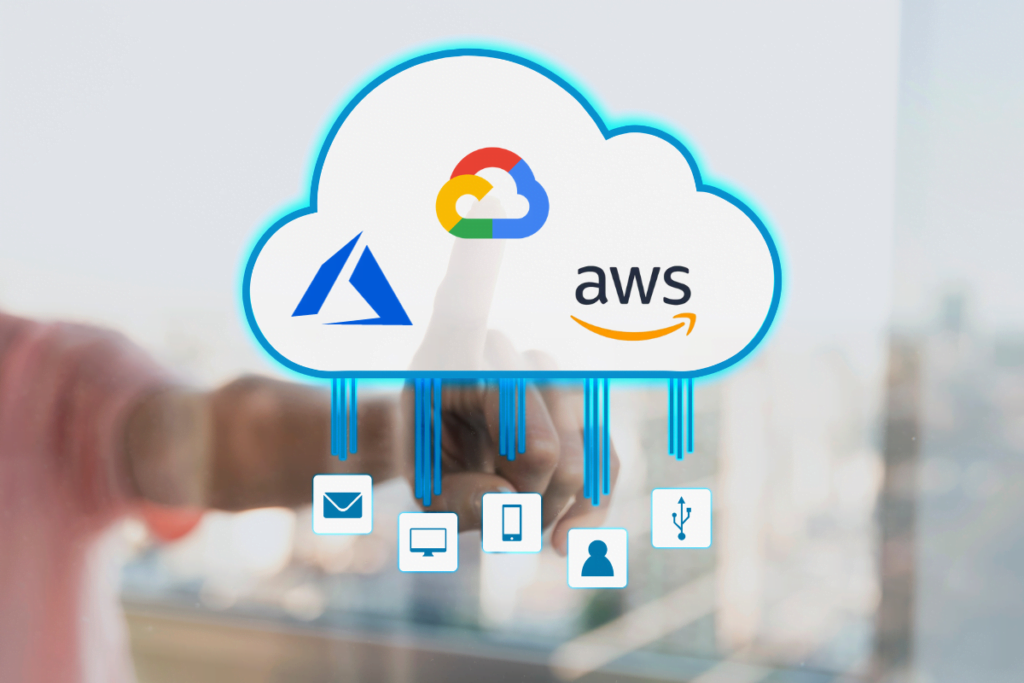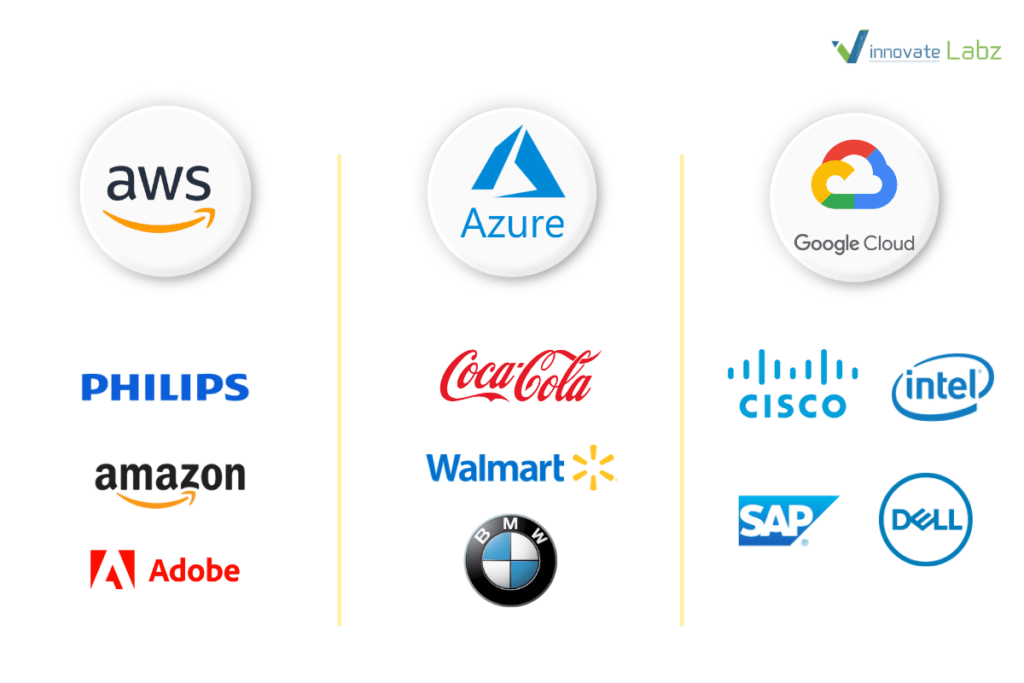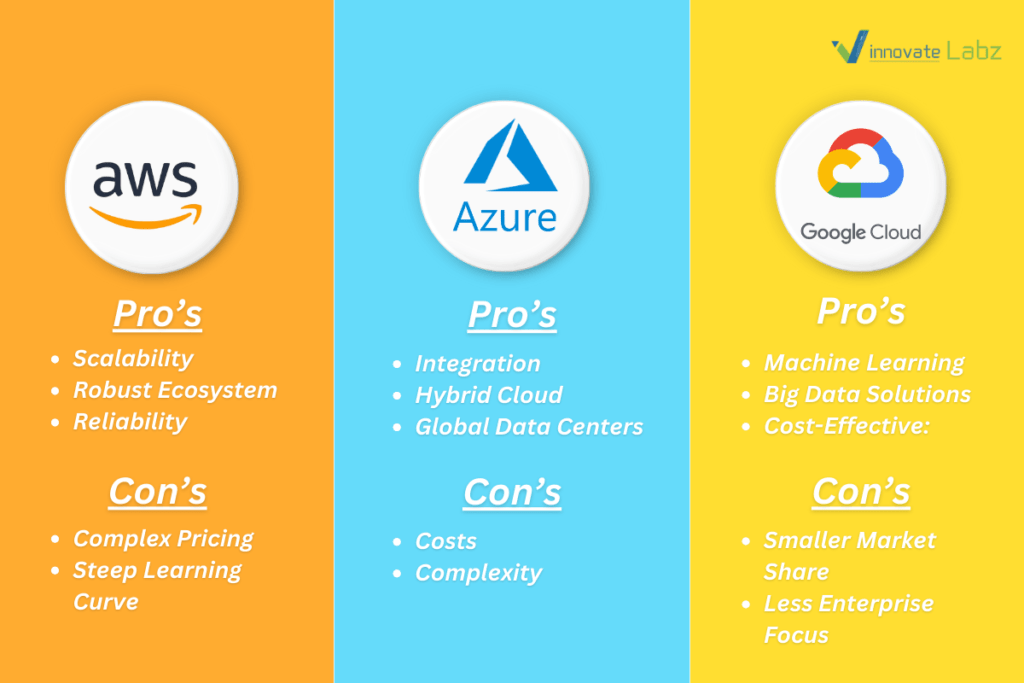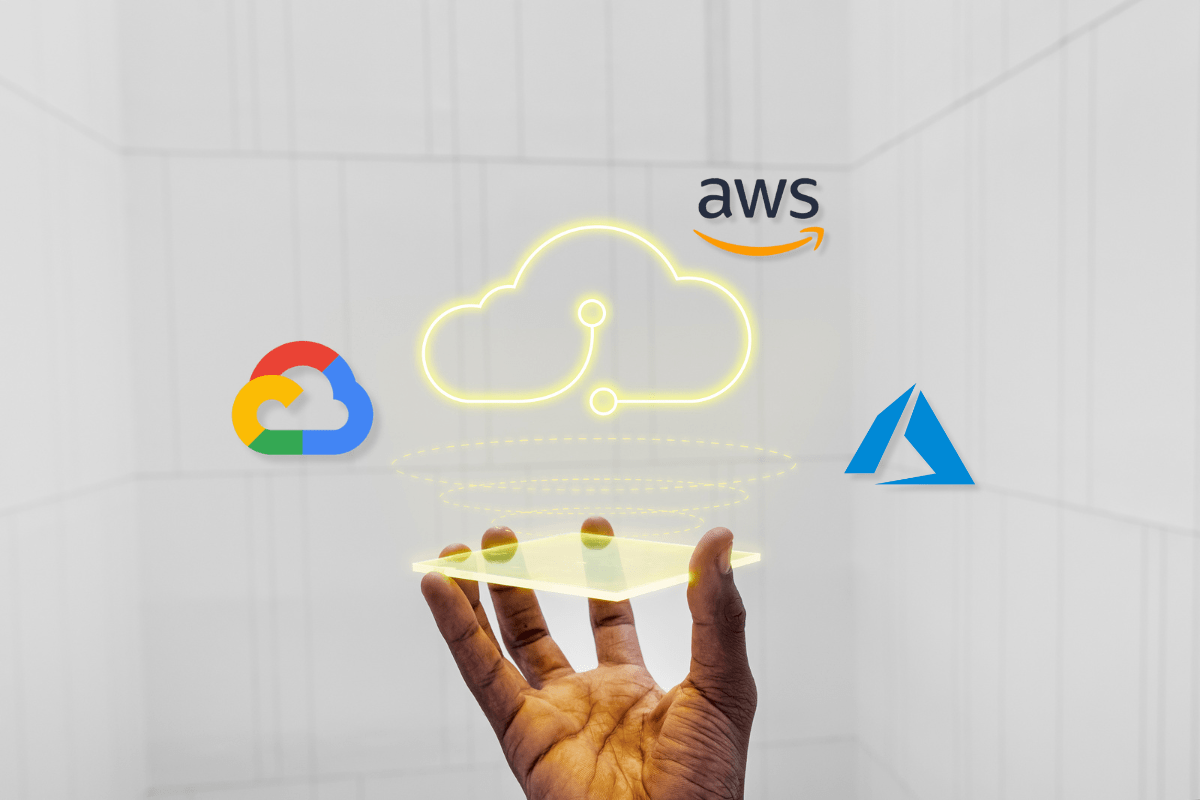Scaling up with Cloud Computing: AWS vs Azure vs Google Cloud
In a world driven by digital transformation, the cloud has become the backbone of modern businesses. With a plethora of cloud providers available, it’s essential to make an informed choice when deciding on your cloud strategy. Amazon Web Services (AWS), Microsoft Azure, and Google Cloud are the giants in the cloud computing realm, each offering a unique set of services and capabilities. In this article, we will dissect and compare these three cloud computing behemoths, helping you make an educated decision about which one is best suited for your needs.
Introduction to Cloud Computing
Before we dive into the specifics of AWS, Azure, and Google Cloud, let’s understand the basics of cloud computing. Cloud computing refers to the delivery of computing services, including servers, storage, databases, networking, analytics, and more, over the internet (By ZDnet). It offers several advantages, including scalability, cost-efficiency, and flexibility.
AWS: The Pioneer
When it comes to cloud computing, AWS is the uncontested leader. As of October 2023, it commanded a substantial share of the cloud market. The AWS ecosystem boasts a multitude of services, including computing, storage, machine learning, and the Internet of Things (IoT). These services are neatly packaged in an easy-to-use console that caters to both beginners and seasoned IT professionals.
The Market Value of AWS
The Unmatched Leader
With a market share exceeding 32% in 2021, AWS comfortably leads the industry, leaving other players striving to catch up. AWS’s dominance can be attributed to its extensive suite of services, global reach, and relentless focus on customer satisfaction. These factors have made AWS the preferred choice for organizations across the globe.
A Strong Foundation
AWS’s market share isn’t just a statistical figure; it reflects the trust and preference of businesses when it comes to cloud infrastructure. Companies, both small and large, rely
on AWS to deliver robust, scalable, and secure cloud solutions, enabling them to accelerate their digital transformation.
Brands with AWS
1. Netflix: The world’s leading streaming platform, Netflix, has been utilizing AWS since 2009. AWS provides the scalability needed to handle the enormous amount of video content streaming to millions of users worldwide.
2. Airbnb: The pioneering accommodation platform Airbnb relies on AWS. It’s data storage and analytics capabilities enable Airbnb to deliver personalized content and recommendations to its users, enhancing their overall experience.
3. Adobe: Adobe, the renowned software company, has partnered with AWS to enhance its Creative Cloud services. By leveraging AWS’s machine learning and analytics tools, Adobe delivers improved content recommendations and personalized experiences to its
customers.
4. Amazon.com: Notably, even Amazon itself utilizes AWS for its web services. This demonstrates the trust the e-commerce giant places in its subsidiary’s infrastructure and scalability to support its massive online retail operations.
5. Philips: The healthcare technology leader, Philips, has turned to AWS to enhance its HealthSuite Digital Platform. By leveraging AWS’s capabilities, Philips can securely and efficiently manage a wealth of health data and deliver connected care solutions.

Azure: The Microsoft Giant
Microsoft Azure is Microsoft’s cloud platform, offering a wide array of services, including virtual
machines, databases, AI, and IoT solutions. Among the prominent players in this arena, Microsoft’s Azure has risen to prominence, wielding substantial market shares and a growth rate that has left competitors in awe. In this article, we delve into the vast realm of Azure, exploring its impressive market shares and phenomenal growth rate that have placed it at the forefront of
the cloud computing industry.
The Market Value of Azure
The Pinnacle of Cloud Computing
Microsoft Azure, commonly referred to as Azure, stands as a testament to the transformative power of cloud computing. Azure, a comprehensive suite of cloud services, offers solutions ranging from Infrastructure as a Service (IaaS) and Platform as
a Service (PaaS) to Software as a Service (SaaS). This versatility has positioned Azure as a go-to choice for businesses and organizations across the globe.
The Power of Market Shares
Azure’s ascension to the summit of cloud computing is unmistakable, reflected in its substantial market shares. In the competitive landscape of cloud services, Azure has consistently garnered a significant portion of the market. According to recent data, Azure’s market share has surged, solidifying its position as a leader in the industry.
The Unstoppable Growth
Growth, in the context of cloud computing, is the holy grail, and Azure has been relentless in this pursuit. Azure’s growth rate is nothing short of extraordinary. Azure
continues to expand its reach and offerings, outpacing even the most optimistic forecasts. This meteoric rise demonstrates Azure’s unwavering commitment to innovation and customer satisfaction.
Brands with Azure
1. Coca-Cola: The beverage giant Coca-Cola has partnered with Microsoft to enhance its digital presence. By using Azure, Coca-Cola has integrated data analytics and machine learning to gain insights into consumer preferences, allowing them to tailor their marketing strategies more effectively.
2. BMW: The renowned automaker BMW has embraced Azure to develop its connected car services. Azure’s IoT solutions empower BMW to collect real-time data from its vehicles, providing drivers with enhanced safety and convenience features.
3. Walmart: Retail behemoth Walmart has turned to Azure to enhance its customer experiences. Azure’s data analytics and AI capabilities help Walmart optimize inventory
management, personalize marketing efforts, and provide a seamless online and in-store shopping experience.
4. Johnson & Johnson: Healthcare and pharmaceutical leader Johnson & Johnson leverages Azure to advance its research and development efforts. By utilizing Azure’s computing power, Johnson & Johnson accelerates drug discovery and enhances patient care.
5. Siemens: Siemens, a global leader in electrification, automation, and digitalization, has partnered with Azure to develop the Siemens IoT MindSphere platform. This
collaboration enables businesses to harness the potential of the Industrial Internet of Things (IIoT) for improved efficiency and productivity.

Google Cloud: The Innovator
Google Cloud, a subsidiary of tech giant Google, is a suite of cloud computing services that offers an array of tools and solutions for individuals, businesses, and developers. It provides infrastructure, platform, and software services, making it a versatile and comprehensive choice for a wide range of applications.
In the ever-evolving digital landscape, Google Cloud has emerged as a powerhouse in cloud computing, revolutionizing the way businesses operate and store their data. This article delves into the depths of Google Cloud, its market value, and why it’s the quintessential choice for businesses seeking cutting-edge cloud solutions. We’ll explore the myriad benefits it offers and why it stands out as the go-to platform for forward-thinking enterprises.
The Market Value of Google Cloud:
The Growth of Google Cloud
Over the years, Google Cloud has witnessed substantial growth, cementing its position as one of the leading cloud service providers in the world. Its revenue and user base have expanded exponentially, thanks to its innovative features and top-notch security measures. With this impressive growth, Google Cloud has undeniably become a dominant force in the cloud computing industry.
Market Value and Competitors
The market value of Google Cloud is nothing short of remarkable. It competes with other cloud giants like Amazon Web Services (AWS) and Microsoft Azure. While AWS
maintains a significant market share, Google Cloud has been steadily gaining ground. Its unique offerings and partnerships with industry leaders have played a pivotal role in
driving its market value.
Brands with Google Cloud
1. Cisco: Google Cloud has a partnership with Cisco to deliver hybrid cloud solutions and optimize networking and security for cloud-based applications.
2. SAP: Google Cloud partners with SAP to provide cloud infrastructure and solutions for enterprise customers running SAP applications.
3. Intel: Google Cloud partners with Intel to leverage their hardware and technology for cloud computing and data analytics.
4. MongoDB: Google Cloud offers managed services for MongoDB, a popular NoSQL database, and has a partnership with MongoDB to provide enhanced support for their
database services.
5. Dell: Google Cloud partners with Dell to offer a range of infrastructure and cloud solutions for businesses.
For more details, have a look
Making the Choice
Consider Your Needs
When deciding between AWS, Azure, and Google Cloud, it’s crucial to assess your organization’s unique requirements. Here are some factors to consider:
● Budget: AWS and Google Cloud often have competitive pricing, while Azure may be more costly for Windows-centric workloads.
● Tech Stack: Consider your existing technology stack and how well each provider integrates with it.
● Geographic Reach: The location of data centers can affect performance, so choose a provider with data centers close to your target audience.
● Specialized Needs: If your business relies heavily on machine learning or data analytics, Google Cloud might have the edge.

Conclusion
In the ever-evolving landscape of cloud computing, AWS, Azure, and Google Cloud have solidified their positions as top contenders. Each provider has its unique strengths and
weaknesses, making the choice a nuanced one. When determining which cloud service is right for your organization, focus on your specific needs, and consider factors like cost, integration capabilities, and geographic reach. No matter which cloud provider you choose, you’re set to
scale up your business with the power of cloud computing.
It’s essential to remember that cloud computing is not a one-size-fits-all solution. Therefore, making an informed decision is paramount. Whether you opt for AWS, Azure, or Google Cloud,
the ability to scale up and innovate is at your fingertips, propelling your business into a new era of efficiency and agility.
FAQs
Yes, cloud providers invest heavily in security measures, making cloud computing a secure option for businesses.
The cost-effectiveness of a cloud provider depends on your specific usage and requirements. It’s best to conduct a cost analysis to determine the most economical choice.and expertise needed to implement digital solutions. IT enables automation, data analytics, cloud computing, cybersecurity, and the integration of various systems, fostering innovation and
efficiency.
Yes, all three providers offer services and tools to facilitate the migration of on-premises infrastructure to the cloud.
Yes, there are other cloud providers like IBM Cloud, Oracle Cloud, and Alibaba Cloud, but AWS, Azure, and Google Cloud are the most prominent ones.blockchain, and automation technologies are key drivers of digital transformation. They help businesses collect and analyze data, streamline processes, and enhance customer experiences.
Cloud computing is expected to continue evolving, with more innovations in areas like AI, machine learning, and edge computing, providing even greater possibilities for businesses.

